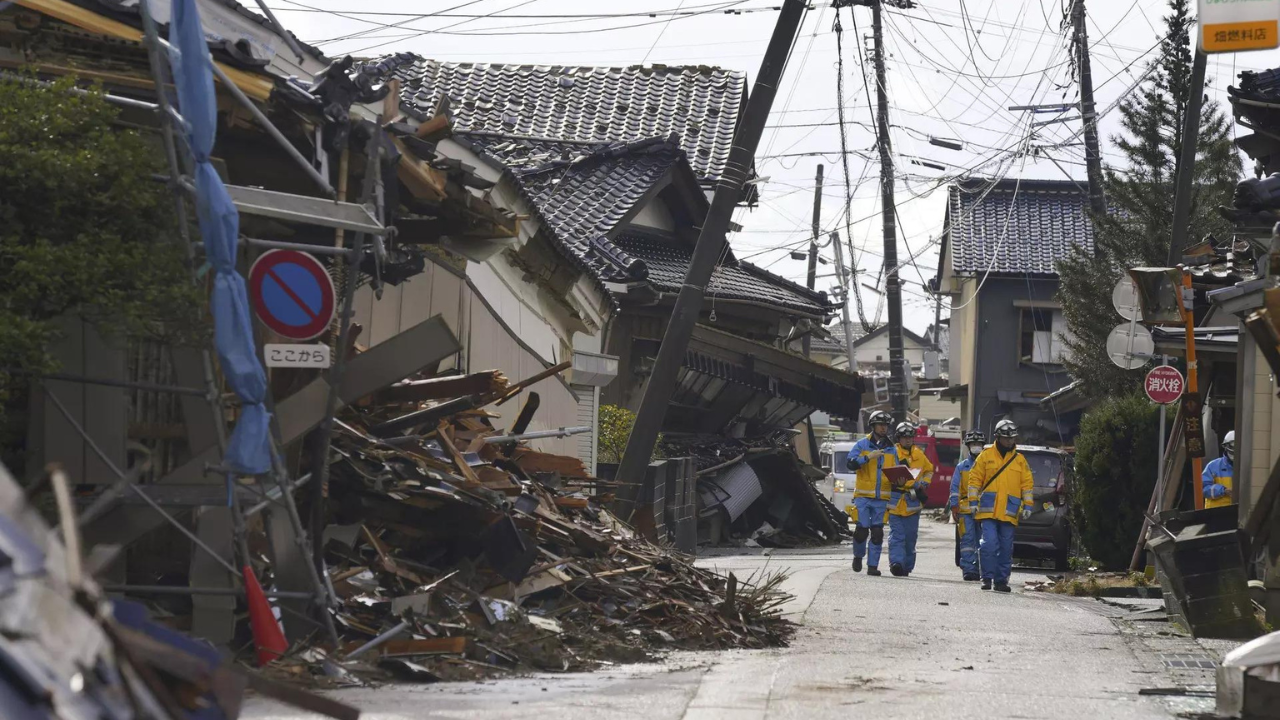US Sees Israeli "Willingness" For Gaza Deal
Israel has shown willingness to agree to a ceasefire and hostage release deal set out by US President Joe Biden and it is up to Hamas to make a move, a top White House official said Monday.

Israel has shown willingness to agree to a ceasefire and hostage release deal set out by US President Joe Biden and it is up to Hamas to make a move, a top White House official said Monday.
National Security Advisor Jake Sullivan's comments came despite growing doubts over the plan, which Biden described as an Israeli initiative but has seen mixed reactions from Prime Minister Benjamin Netanyahu's government.
"We've seen again over the weekend from Israel a willingness to step forward and do a deal," Sullivan told the Global Impact Forum in Washington.
"All of those people who have been calling for a ceasefire for all of this time, they need to train their eyes on Hamas this week and say 'it's time come to the table, do this deal.'"
Sullivan, who has made a series of visits to the Middle East since Hamas's October 7 attacks on Israel triggered the war, said a deal would be the "best thing" for the people of Gaza, Israel and the United States.
State Department spokesman Matthew Miller said the proposal was "nearly identical" to one submitted several weeks ago by Hamas and called on the militant group's leader, Yahya Sinwar, not to "move the goalposts."
"If Sinwar decides that he's safe in a tunnel, and this proposal isn't in his interest because he feels safe, that's an assessment he can make. But I think it is very clearly in the interest of the Palestinian people," Miller told reporters.
Biden on Friday presented what he labeled an Israeli three-phase plan that would end the conflict, free all hostages and lead to the reconstruction of the devastated Palestinian territory without Hamas in power.
However, Netanyahu's office quickly stressed that Israel would push on with the war until all of its goals, including the end of Hamas as a military and political force, are achieved.
Asked about Israeli holdouts to the deal, Miller said that "endless conflict in Gaza in pursuit of some idea of total victory is not going to make Israel safer."
He said that Hamas had ben "incredibly diminished" in the eight months of war, with a large number of its fighters killed, and weapons and underground arms factories destroyed.
"We do not believe it can conduct an attack anything like the scale and scope it did on October 7," Miller said.
Hamas on Friday said it viewed Biden's outline "positively" but since then it has made no official comment.
The White House insisted on Monday that the peace plan was Israel's own, and not drafted by Washington to put pressure on its key ally.
"It is an Israeli proposal. It's one that we, and they, worked on through some intense diplomacy," National Security Council spokesman John Kirby told reporters.
Biden informed Israel in advance that he would make the announcement, he said.
"The president felt that it was important to lay it out there publicly so that the whole world could see what was in here," added Kirby.
(Except for the headline, this story has not been edited by NDTV staff and is published from a syndicated feed.)



































![Safari Thorium Neo 8-Wheel Luggage Set Trolley Bags (Set of 3) at just Rs. 5,599 [MRP 29,100]](https://savefree.in/uploads/images/202409/image_870x580_66f63845060f0.webp?#)












![Handmade Brown Mango Wood Chopping Board At just Rs. 89 [MRP 599]](http://savefree.in/uploads/images/202303/image_870x580_641bf7e9c2206.jpg?#)


